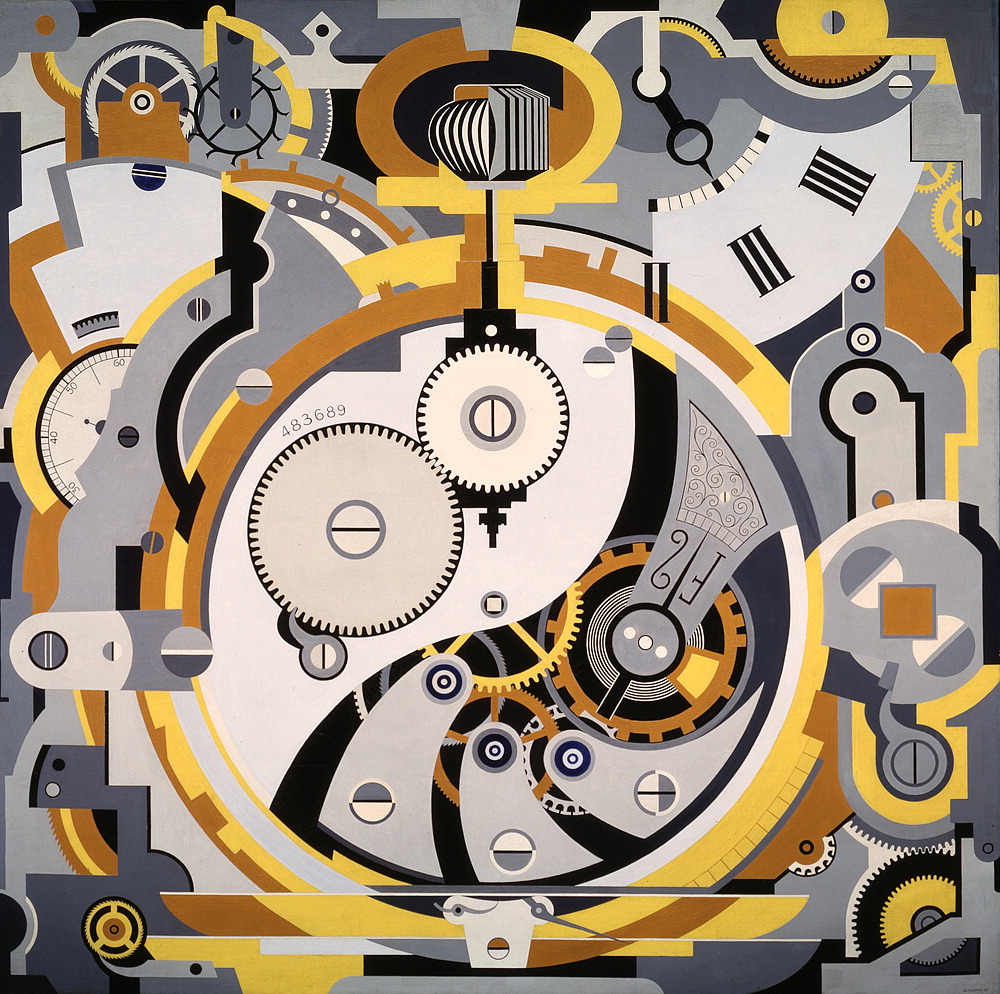Of all the art in the DMA’s collection, I think I like Gerald Murphy’s Watch most of all. I adore how Murphy makes a complex technological system look bright and vibrant. But moreover, I appreciate how his painting explores the difficult relationship between the people and science of his time. In the 1920’s, the idea of time was changed dramatically by the widespread dissemination of Einstein’s Theory of Relativity in 1919. Suddenly, the Newtonian concept of time as a uniform absolute was invalidated. For many writers and artists of the period, Einstein’s discovery dramatically revised the way they saw the world.
Murphy’s Watch explores one man’s view of this sudden change in the perception of time, how it went from an external force outside of the comprehension or control of people to something interior, relative, and subjective. In the painting, Murphy represents his watch internally, by the gears and machinery which make it function and give it power rather than by its most familiar characteristic: its face.
Shannon Karol nicely summarizes the relationships between Murphy and Lost Generation writers. In it, she talks about Murphy’s friendships with Ernest Hemingway and F. Scott Fitzgerald. Murphy was also friends with Archibald MacLeish, a poet who shared Murphy’s fascination with time. In MacLeish’s poem “You, Andrew Marvell,” he describes the shadow of the night as it spreads over the face of Asia and Europe. The title of the poem makes reference to poet Andrew Marvell who, in his own poem “To his Coy Mistress,” speaks about the sway of time over the affairs of lovers. By naming his poem this way, MacLeish reminds readers of time’s slow and steady creep and of its great and terrible power over the lives of people.
By discussing literature and art together, one can explore thematic connections which might not be otherwise apparent. Share some literary or thematic connections you use to talk about DMA art with your students in the comment section below.
Tom Jungerberg
IMLS Grant Coordinator

1 Response to “Gerald Murphy and Archibald MacLeish”